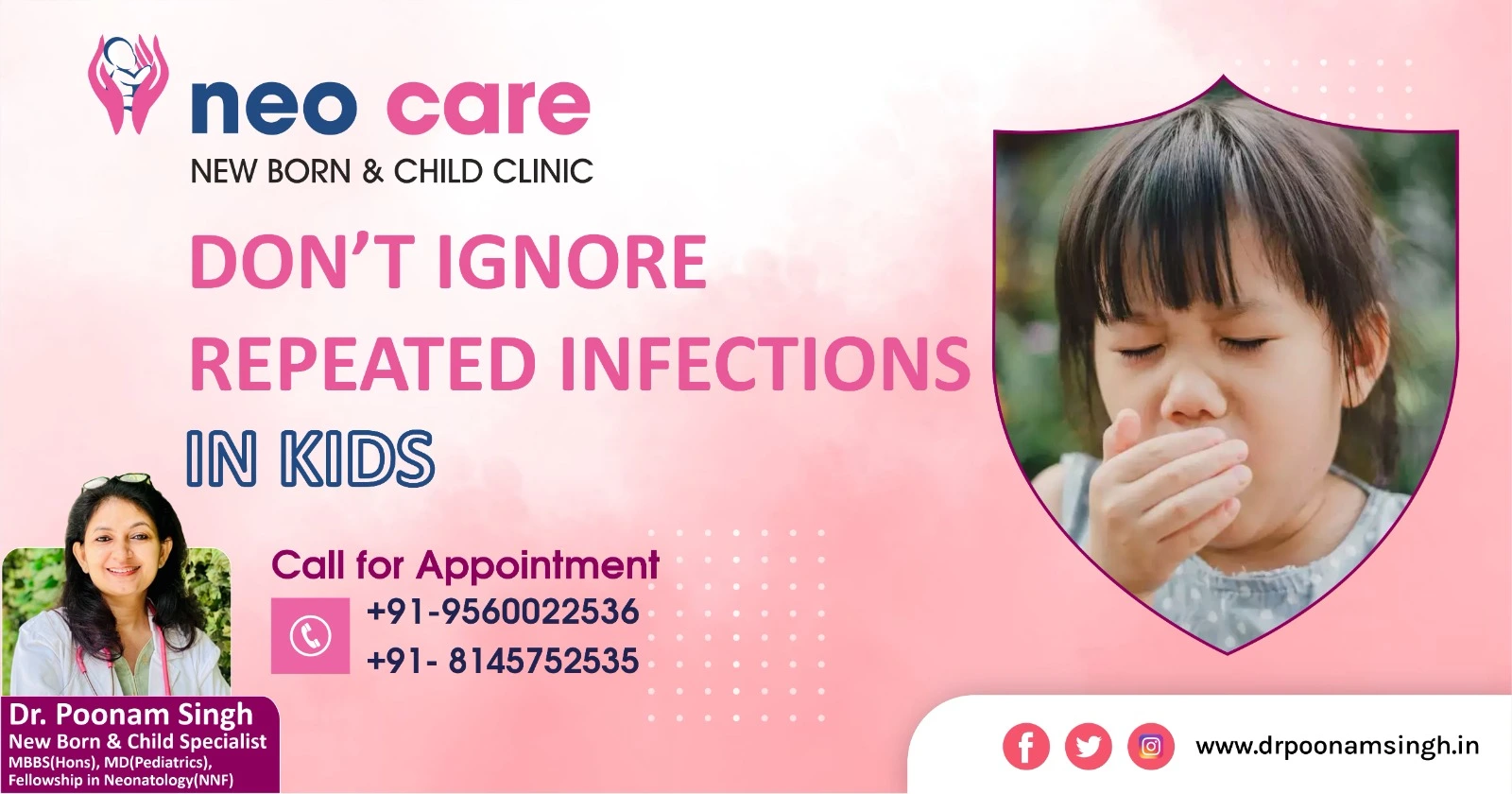A Tribute To Exceptional Doctors : Doctor's Day Awards For Excellence In Healthcare
01.07.2023
Don’t Ignore Repeated Infections in Kids
Don’t Ignore Repeated Infections in Kids
Dr Poonam Singh
Pediatrician & Neonatologist
MBBS (Hons), MD (Pediatrics)
Fellowship in Neonatology (NNF)
Repeated infections in children can be a cause for concern and should not be ignored. While it is common for children to catch occasional illnesses, persistent or recurrent infections may indicate an underlying health issue that requires attention.
One of the primary reasons to pay attention to repeated infections is to ensure the child's overall well-being. Frequent bouts of illness can disrupt their daily activities, affect their academic performance, and hamper their social interactions. Identifying the underlying cause can lead to appropriate treatment and preventive measures, ultimately improving the child's quality of life.
Recurrent infections may indicate a weakened immune system in children. Various factors can contribute to this, such as nutritional deficiencies, chronic illnesses, immune disorders, or exposure to environmental allergens. Certain infections, if left untreated or undiagnosed, can have serious consequences. For example, repeated ear infections (otitis media) can lead to hearing loss or speech delays if not addressed promptly. Similarly, untreated recurrent throat infections (such as strep throat) can lead to complications like rheumatic fever, which affects the heart and joints.
In some cases, recurrent infections may be a sign of an underlying structural abnormality, such as enlarged adenoids or tonsils. These physical obstructions can increase the risk of infections and may require surgical intervention.
Seeking medical evaluation can help identify any underlying conditions and provide guidance on appropriate management strategies. Parents should closely monitor their child's health and take note of any patterns or concerning symptoms. Keeping a record of the frequency, duration, and nature of the infections can provide valuable information to healthcare professionals during medical consultations.
When it comes to repeated infections, prevention is key. Encouraging good hygiene practices, such as frequent handwashing, maintaining a clean environment, and teaching children proper coughing and sneezing etiquette, can help reduce the risk of infections. Additionally, ensuring that children receive recommended vaccinations can provide protection against various infectious diseases.
If a child experiences recurrent infections, it is advisable to consult your Pediatrician. He or She can conduct a thorough evaluation, which may include a medical history review, physical examination, and, if necessary, laboratory tests. Based on the findings, your Pediatrician can offer appropriate treatment options or refer the child to a specialist if needed.
In conclusion, repeated infections in children should not be ignored. They can indicate underlying health issues, weaken the immune system, and potentially lead to complications if left untreated. Timely medical intervention, preventive measures, and maintaining good hygiene practices can help ensure the well-being of the child and promote a healthier future.
In case you have a concern or query, feel free to contact your Paediatrician - Dr Poonam Singh at neo care (New Born & Child Clinic) @ Sector-104, Noida or visit www.drpoonamsingh.in for more information.
Share:
Recent Post
Understanding Flu
18.02.2023A Guide to Your Kid’s Developmental Milestone
09.01.2023Tips to Avoid Falling Sick During Changing Seasons
15.04.2022Wondering – How to select the Best Child Specialist in Noida !!!
11.01.2022Fibre – How important is it for Kids?
22.12.2021What is Influenza?
17.09.2021Why vaccinations are important for your Child?
26.09.2021How to help the Constipated Kid?
16.10.2021